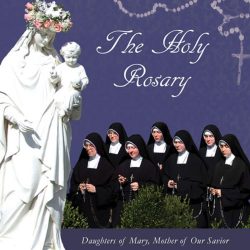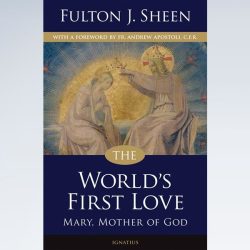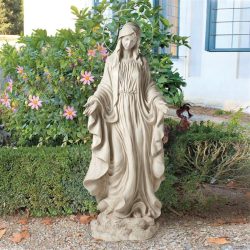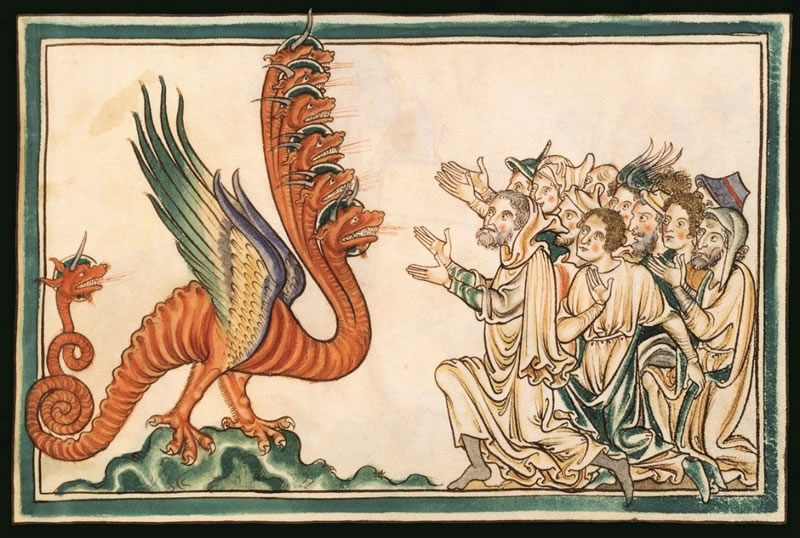

“Veruntamen Filius hominis veniens , puias , inueniet fidem in terra?
– But yet the Son of Man when He cometh, shall He find, think you, faith on earth? “
(Words taken from the 8th verse of the 18th chapter of St. Luke’s Gospel.)
THESE words of sad foreboding were uttered by our Blessed Lord when he had been exhorting His disciples never to faint or grow weary in prayer. He told them how the unjust judge had avenged the poor widow’s wrong, simply because, in her importunity, she gave him no peace till he did so. He feared not God, and did not regard man, yet he was forced by her continual prayer to do justice. ” Hear what the unjust judge saith; and will not God avenge His elect, who cry to Him day and night, and will He have patience in their regard? I say to you that He will quickly revenge them. But yet the Son of Man, when He cometh, shall He find, think you, faith on earth?” His Elect will cry to Him day and night, and He will certainly come quickly to avenge them.
The persecution of Antichrist will be very severe, and his seductions very powerful, so as to lead astray, if it were possible, even the Elect. But, by the mercy of God, it is not possible. About this same time He said to the Jews, “My sheep hear My voice, and I know them, and they follow Me, and I give them life everlasting; and they shall not perish for ever, and no man shall pluck them out of My hand. … No man can snatch them out of the hand of My Father.” (St. John x., 27—29). And so we may venture to say, Yes, Lord, Thou shalt find faith upon earth, though it may not be the wide, the intense, the universal faith which Thy mercies and Thy love have deserved of us.
There shall be wise virgins then, with oil in their lamps, good and faithful servants, whom their Lord, when He cometh, shall find watching! But at the same time, my brethren, we must say, if we look to the account of the latter days which is given us generally in the writings of the Apostles, that there will have been great ruin and havoc made among Christians before our Lord cometh. There is to come the great apostasy — as it seems, a greater and more calamitous loss to the Church, for the moment, than the schism of the East, or the perversion of the North of Europe. This is our subject this afternoon, the last feature of the latter days that we need dwell upon in detail, before we pass on, next Sunday, to the consideration of the consummation and restoration of all things by the coming of our Lord Jesus Christ.
Before I proceed to count up what indications are given us of the falling off of the latter days, let me make one or two remarks on the manner in which we must interpret the words of the holy Apostles who seem to speak of this. In the first place, we must remember that, to the Apostles and the writers of the New Testament generally, the life of the
Church is one and continuous. With God, one day is as a thousand years, and a thousand years as one day. The Apostles and Prophets see the future, to some extent, in the view of God Himself, and they speak of the last days as imminent, and even present to the men of their own generation, for this reason, among others, that the same Church which existed in their days will have to meet the storms of that last outbreak of evil. St. Paul knew perfectly well that the days of Antichrist were far distant, and he even warned the Thessalonians not to think them close at hand; and yet he seems to speak of those who are to be alive at the day of judgment as if he and those to whom he wrote might be among them. In the same way, while describing the many evils of the last ages of the Church, the Apostles spoke of the special forms in which the mystery of iniquity would work in the generation which was rising up around them as they themselves drew near to the end of their course.
The same principles of evil with which we have to contend, and with which those after us will have to contend in different developments, were already sending forth those evil shoots which sprung up into the heresies of the first and second centuries; heresies to which the men of our day are not likely to return in every particular, though they have sometimes imitated them with wonderful exactness. Thus, in examining what the Apostles tell us of the evils of the last days, we may sometimes find a distinct and particular prophecy of a form of error which is now either dead and gone, or at least living only in some remote development. For instance, there is a distinct description given in the Epistles of the’ Manichean heresy. In these prophecies, then, we must seek chiefly the roots and seeds and sources of the future apostacy, which are the same, more or less, in all ages and in every generation. In them we shall learn what to expect in the times to come, and what we are all to do battle against in our own time.
And now, when we turn to the Sacred Scriptures, and ask them what they have to tell us about the evil principles which shall rule the world to so large an extent in the latter days, we find that this prophecy, like that about Antichrist, fills a large space in the sacred pages, and is to be found in the Old Testament as well as in the New. Daniel tells us “that many shall be chosen and made white, and shall be tried as in the fire, that the wicked shall deal wickedly, that none of the wicked shall understand, but the learned shall understand;” (Dan. xi. 10. f Matt. xxiv. 12. % St. Jude xviii. 2 St. Peter iii. 3.) and this, you see, corresponds to what St. Paul tells us of the delusions of the latter times, that because people receive not the love of the truth, God shall send upon them the operation of error, ” to believe lying.” What Daniel says about the blindness of those times our Lord Himself says about their lawlessness : ” Because iniquity shall abound, the charity of many shall grow cold.”
St. Peter, and St. Jude, who follows him, tell us about the scoffers and mockers, the disdainful despisers of revealed truths, those who “walk according to their own desires in ungodlinesses,” and laugh at the expectation of Christians as to the fulfilment of the prophecies as to Christ’s second coming. In these passages, my brethren, we seem to have a faint though definite picture of men who will suppose that they have made themselves perfectly masters of the secrets of the physical universe, who have to their own satisfaction disproved the truths of the holy narrative of creation, and so think they have nothing to fear from anything as to the future which Scripture records by way of prophecy. I have already said that St. Peter tells us that these men will willingly forget the fact of God’s one greatest interference with the physical order of things since the creation, within the range of human history, I mean the chastisement and almost entire extinction of the human race by the waters of the Flood.
If we put these descriptions together, my brethren, without proceeding further in our examination of the prophecies, we have a picture the chief features of which may thus be described : There is to be in the latter days a great disregard of all law, moral and social, human, natural, and divine; there is to be a great decay of charity in the largest sense of the term, of the natural charity which binds man to man, the tie of natural kindliness which should keep together the different members of the various unities which God, Who “maketh men to be of one mind,” has established in the world, the family, the country, the race — as well, alas! as of that supernatural charity by which the children of God are bound together in Jesus Christ.
There is to be a great blindness to truth, though witnessed to by evidence incontrovertible and luminous in the highest degree, and this blindness to, and dislike of, truth is to be accompanied by a strong and fanatical belief in debasing and corrupting delusions. This hatred of truth, and this love of ungodliness, are to be further punished by great intellectual pride, an arrogant reliance on supposed acquirements and false knowledge, which again is naturally to issue in contempt for the simple faith of Christians in the divine revelation, in the words of Scripture, and in the teaching of the Catholic Church.
You will observe, my brethren, that here we find no mention made of distinct heresies or false doctrines. There is rather to be a general decay or denial of all faith, and a sort of practical paganism. And thus we are prepared for what some old Christian writers tell us on this very subject of the future restoration of heathenism. There is a mysterious vision in the Apocalypse, (Apoc. xiii. 3, 12.) of a beast that was wounded, and, it seemed, slain, but which is brought to life again by the power of the false prophet, and adored by all on earth whose names are not written in the book of life. This vision is interpreted, by the writers to whom I allude, of heathenism, which has been, as it were, put to death by the Christian religion, but which will hereafter revive and reign for a short time. Now I say that, whether this old interpretation be certainly true or not, it is at least wonderfully confirmed by St Paul’s account of the latter times. I have as yet hardly alluded to this great Apostle, because his words are so clear and full that I have kept them for the last. St. Paul, if we may so say, is that one of the Apostles and of the writers of the
New Testament who seems to have been commissioned to speak with a special force and authority both on the subject of the latter days and on all that concerns the heathen world. He, who had begun his life by being so exceedingly zealous for the traditions of Judaism, so that he had gone beyond all others in his care for them and in his hatred to the Church, which he looked upon as supplanting and subverting them, had afterwards, by the providence of God, to turn himself with a singular devotion, with a peculiar gift of intelligence and depth of sympathy, to the heathen world, for whose conversion he laboured so long and with so much blessing from God.
We call him, my brethren, the Apostle of the Gentiles, not only because he preached so much among them, as other Apostles also preached, but for this reason also — that he had a gift and grace of his own to understand them, to penetrate the system which reigned among them, to put his finger upon its weakest points and the sources of its misery, and to apply to the special wounds which it had inflicted upon the human race the gentle medicines of truth and grace. And it may be said, without fear of contradiction, that if St. Paul were to be considered simply as a Christian philosopher commenting upon the evils and general tendencies of his own age, and of the system of the world under which he lived, he would have to be placed at the very head of all philosophical writers for the analysis and description which he has given us of the heathen world.
We have this description chiefly in two great documents — in St Paul’s speech at Athens to the philosophers, (Acts xvii. 22—31. Rom. i. 18—32. Acts xiv. 14—16) and in his account of the miseries of heathendom in the Epistle to the Romans.f I shall speak presently of a third great passage which I mean to compare with these, in which, years after his Epistle to the Romans, he describes the men of the latter times. Let us first deal with the account given by the Apostle of the heathenism among which he lived and worked. In his speech, then, at the Areopagus, St. Paul describes in brief God’s ways of dealing with the world. He tells the Athenians, as you know, of the “unknown God,” whom they worshipped in ignorance, Who, nevertheless, was the Creator and the Father of all. He had made of one blood, of one stock, of one nature, all nations on the face of earth. He had given them, as is implied in this, one moral law, one promise, one primeval tradition, one common hope of future salvation.
Then He had, as it were, withdrawn, and left them to themselves, though still His providence ruled them, appointing the whole course of what is called the world’s history, the rise, and fall, and character, and vicissitudes of nations and empires, and giving to all men, as St. Paul had said before at Iconium, abundance of good gifts, “Giving rains and fruitful seasons, filling our hearts with food and gladness.” And the Apostle tells his hearers how the heathen had, as it were, to grope, like blinded men, after God, although He was all the time so near to them, as to all of us — “for in Him we live and move and be.” And he speaks in the same place, though gently and reservedly, of those terrible and lamentable errors into which the nations left to themselves had fallen, touching upon the crown and consummation of them all, the idolatrous worship of false gods.
And now we must turn to the other great passage, which must be compared with this of which I have been speaking, where, at the beginning of his Epistle to the Romans, the same Apostle gives what we may call a companion picture to the former, describing the manner in which the heathen nations had in return treated God, and the consequences to themselves in which that treatment had issued. He speaks of the inexcusable ingratitude of the heathen to so good and wonderful a Creator, of their refusal to acknowledge Him, notwithstanding the strong evidences concerning Himself which He had imprinted on the face and on the course of nature; of the punishment which fell on them — that of being given over to idolatry: and then again of the further punishment of this judicial delusion, by which they became the slaves of lusts which in their abominable degradation went even beyond the extreme indulgence of all natural animal appetites. You may remember, my brethren, that fearful picture, on the details of which it is not necessary that we should linger for any space of time this afternoon.
The character of heathendom, as he describes it, is based, of course, on intense selfishness, working itself out in an eager grasping after all the objects of concupiscence, and so in avarice, in the reckless pursuit of pleasure at whatever cost to others, in the passionate love of earthly honour and position; then rising, as was only natural after this, into intense pride and haughtiness, into unbending stubbornness of will and judgment, and, further still, wreaking itself on all who came across its path, in envy, contentiousness, violence, contumely, in malignant craft, or insolent and reckless cruelty. By the side of these savage features of debased humanity, we find placed, as is always the case in reality, a voluptuousness and licentiousness that knew no bounds.
And these two great passions of lust and pride combine in the character of the heathen world, as drawn by St. Paul, to smother and destroy all those instincts of natural piety and goodness which are implanted in man by his Creator, to which his conscience witnesses, and which animate and sustain all that social and domestic life which is the fundamental condition of our being and our happiness as men. Hence we find in St. Paul’s description of heathenism a number of traits which point to the want of all natural affection.
The tie which binds parents to children, and children to parents, was dissolved; so again, the law of faithfulness and truthfulness, which is essential in order that we may trust one another in the common intercourse of life, was set aside, as also the rule of gratitude and honesty, the law of respect for the characters of others in men’s language, the observance of obligations, the habit of peaceableness, the practice of kindness, even the instinct of mercy to the conquered, the weak, the helpless, the afflicted — mercy, the one provision of God for the numberless and otherwise inconsolable miseries to which the world is given up!
Such, in brief, is this great description of the heathenism of his own time given us by St. Paul.
And now I come to the point of our argument concerning the latter days. This same great Apostle, as I have already said, has dwelt in more than one place on the characteristics of the men of those future times, as he has so often dwelt on the characteristics of the old heathen. We have already had occasion to examine what he has said in some of these passages; but one great description remains, written, moreover, as I have said, at the very end of St. Paul’s life, on the eve of his martyrdom, in his last Epistle to his beloved child Timothy. (2 Tim. iii. I, seq.)
This is the longest and most particular description given us by the Apostle, and striking as it is in itself, it is perhaps still more striking when it is compared with the earlier passage in the Epistle to the Romans, to which I have referred. If you will take that passage, in which the vices and degradation of the unconverted heathen world are described with so much indignant severity, and yet with a certain discriminating tenderness and largeness of sympathy, and if you will put it side by side with the other account which, by way of prophecy, St. Paul gives, so many years afterwards, of the corruptions of the latter days, you will find that with one or two striking differences, which I shall point out, the two passages tally exactly.
The differences that exist are important in themselves, as we shall see; and they are precious also on another ground, because they show us, if that be needed, that St. Paul has weighed his every word, that he has nowhere indulged in any mere expletives of invective, nowhere made one single charge, either against the ancient heathenism or against its modern revival, without the fullest knowledge and the calmest deliberation. Bear with me, then, if I dwell for a few moments on the points of agreement and of difference between the two.
In that old heathenism of the Roman world, into which it was the will of God that the Christian religion should be introduced by the Apostles, there were three diverse and often conflicting elements. There was a good element, which came from God; there was a thoroughly bad element, which came from Satan; and there was a corrupt element, which was the fruit of the workings of unregenerate human nature upon society, and upon the objects of sense and intelligence with which man is placed in relation.
The good element we see embodied in great part of the laws and institutions of the ancient world, as also in much of the literature, the poetry, the philosophy of Greece and Rome, which literature consequently — after having been purified and, as it were, baptized — has always been used by the Christian Church in the education of her children. This element, I say, was originally the gift of God, the Author of Nature, to man, the offspring of reason and conscience, the tradition of a society of which God was Himself the founder. It enshrined whatever fragments of primeval truth as to God, the world, and man himself, still lingered, in whatever shape, among the farwandering children of Adam.
St. Paul alludes to this element in the first passage on which we dwelt today, and his words altogether seem to imply that God watched over it, supported it, and fostered it, as far as men were worthy of it, and that it might even have been expanded into a perfect system of natural religion and of reasonable virtue, had men been grateful enough to earn larger measures of grace from God, Who left not Himself without witness in His daily providence, and was ” not far from ” any one of His children.
But now we come to another element, which just now I placed the last of the three, the workings of which we may distinguish in the heathen world. All flesh had corrupted its way upon the earth, and man had shut out the knowledge of God from his soul, .and had let his passions lead him instead of his conscience.
The unregenerate instincts of nature gradually overpowered the moral law in the heart •of man, and their victory reflected itself in the rules •of society, in the customs and maxims by which human life was guided. In proportion as man became more and more the master of the world, as wealth and power, and knowledge and experience increased, as civilisation (so to call it) and means of communication advanced, there grew up that great .system of cruelty and immorality, of the godless pursuit of pleasure and worldly ends, which we call paganism.
For paganism is not properly a religion so much as a system of human life and human society, according to the impulses and unbridled lusts of the natural man, checked only by what remained of strength in the law of right as written in men’s hearts, in the voice of conscience, and in the old traditions of better days, and also by the law of necessity which made it imperative that society should in some way or other be kept alive and held together. St. Paul, in the passage to the Romans on which we have dwelt, has described to us, my brethren, what sort of men they were who were penetrated by this pagan spirit.
And now, as I have already said, when the same Apostle comes to describe the men of the latter days, he paints them, as to all moral degradation, in the same colours as the pagans of his own time. The two passages correspond as to this word for word; the latter text is almost a repetition of the former. Thus far, then, we have St. Pauls authority for saying that the apostacy of the latter days will be a return to heathenism, understanding by that word the godless system of life and manners which is the fruit of the unrestrained development and reign of the lower instincts of human nature.
These thoughts bring us to the third element of paganism — that which I call the work of Satan, the enemy of God and man. As to this, also, we have St. Paul’s authority, in that passage where in a few short words he tells us that the gods of the heathen were devils. (I Cor. x. 20.) We, my brethren, are often inclined to look upon the personages of which the heathen mythology is made up as a number of poetic creations, as the powers of nature symbolised, or perhaps, at the worst, as great men and famous heroes of fabulous times raised by a sort of natural canonisation to the thrones of a higher world.
This is the human part of the heathen religions, skillfully used by the authors of evil to disguise their own work for the delusion of men. But there was more behind those forms of apparent grace and beauty than the imagination of earthly poets. This might have been seen, we might truly say, by the base impurities in which they were steeped. No, my brethren, unless St Paul is mistaken, unless thousands of Christian Martyrs were mistaken who treated the heathen idols as the forms under which the apostate angels were adored, the gods of the heathen were Satan and his associates, permitted by the just judgment of God to draw to themselves the adoration which men had denied to Him; and taking care to deify in themselves every shape of human vice and passion, and to exact from their worshippers impure rites and filthy mysteries, that man, made in the image of God, might learn from them to degrade himself even beneath the level of the beasts of the field.
Or, if we want a still more clear proof of the Satanic agencies which underlay the pagan religion, we may find it in that other kind of worship which it exacted in the ancient world, and is still found to exact — I mean the frightful tribute of human sacrifice, a custom widely spread and almost universal among pagan nations, some of whom have astonished even their Christian discoverers by their mildness and gentleness, their courtesy and simplicity, and yet have been found to be penetrated to the core by corruption, and to be in the habit of honouring their gods by the frightful homage of hecatombs of human victims, a homage enough of itself to proclaim as its author the hater alike of man, and of God Who created him !
Here then, my brethren, we have come to that part of the comparison as to which it need not be said that St Paul’s two descriptions are identical. We need not exaggerate the miseries of our own time, nor draw in darker colours than St. Paul the evil features of the last great apostacy. The Son of God, as another Apostle tells us, was “manifested that He might destroy the works of the devil,” (I John iii. 8.) and I do not find, in any of the prophetic descriptions of the restored paganism of modern days, that the system of the worship of false gods is to revive, with its abominable rites of blood and its mysteries of licentiousness.
Wherever the Cross has been once firmly planted, we may surely hope that the world has seen the last of the public worship of Satan. In St. Paul’s description of the latter days, I find the blasphemy of the true God substituted for the worship of devils. But, my brethren, the Son of God was not manifested altogether to destroy the works of man. He came to raise man, change him, regenerate him, sanctify him, by uniting him to Himself. He did not come to take away man’s free will, or to tear out of his nature those seeds of possible evil which produced all the human part of the paganism on which we have been reflecting. The empire of Satan has been overthrown, but alas! man is still his own great enemy, and though our Lord has armed him against himself, He has still left him the power to mar the work of God in his own soul, and this power, which each one of us possesses in his own case, is always fearfully active in the corruption of the Christian society, the character of which is the result and the reflection of that of the parts of which it is made up.
And now, my brethren, what need have we of any subtlety of inquiry or refinement of speculation to tell us that this modern heathenism of which the prophecies speak is around us on every side ? Mankind are in many senses far mightier, and the resources and enjoyments at their command are far ampler, than in the days of old. We are in possession of the glorious but intoxicating fruits of that advanced civilisation and extended knowledge which has sprung up from the seeds which the Church of God has, as it were, dropped on her way through the world. Society has been elevated and refined, but on that very account it has become capable of a more penetrating degradation, of a more elegant and a more poisonous corruption. Knowledge has been increased, but on the increase of knowledge has followed the increase of pride. Science has unravelled the laws of nature and the hidden treasures of the material universe, and they place fresh combinations of power and new revelations of enjoyment in the hands of men who have not seen in the discovery increased reasons for selfrestraint or for reverence for the Giver of all good gifts.
The world, the home of the human race, has been opened to civilised man in all its distant recesses, and he has taken, or is taking, possession of his full inheritance; but his onward path is the path of avarice and greed, of lust and cruelty, and he seizes on each new land as he reaches it in the spirit of the merchant or the conqueror, not in that of the harbinger of peace, the bearer of the good tidings of God. At home, in Christendom itself, we hear, as our Lord said, of wars and rumours of wars, nation rising against nation, and kingdom against kingdom. In the Apostles’ time, it was an unheard of thing that the majestic peace and unity of the Roman Empire should not absorb and keep in harmony a hundred rival nationalities. In our time it is not to be thought of that the supernatural bond of the Christian Church should be able to keep nations which are brethren in the faith from devouring one another.
Or, again, my brethren, let us turn from public to private life. Look at social life, look at domestic manners; consider the men and women of the present day in their amusements, their costumes, the amount of restraint they put upon the impulses of nature; compare them at their theatres and their recreations, compare them as to their treatment of the poor and the afflicted classes; compare them, again, as to the style of art which they affect, or the literature in which they delight, with the old heathen of the days of St Paul. I do not say, God forbid ! that there is not a wide and impassable gulf between the two, for that would be to say that so many centuries of Christendom had been utterly wasted, and that the Gospel law has not penetrated to the foundations of society, so that it is not true that our Lord rules, as the Psalmist says, ” in the midst of His enemies,” (Psalm cix. 2.) even over the world, which would fain emancipate itself from His sway.
But I do say, that if a Christian of the first ages were to rise from the dead, and examine our society, point by point, on the heads which I have intimated, and compare it, on the one hand, with the polished refined heathen whom he may have known at the courts of Nero or Domitian, and, on the other, with the pure strict holiness of his own brethren in the faith who worshipped with him in the catacombs, he might find it difficult indeed to say that what he would see around him in London or Paris was derived by legitimate inheritance rather from the traditions of the martyr Church than from the customs of the persecuting heathen. He would miss the violence, the cruelty, the riotous and ruffianly lust, the extraordinary disrespect for humanity and human life which distinguished the later Roman civilisation; but he would find much of its corruption, much of its licentiousness, much of its hardness of heart.
The unregenerate instincts of human nature are surging up like a great sea all around us, society is fast losing all respect for those checks upon the innate heathenism of man which have been thrown over the surface of the world by the Church. It is becoming an acknowledged law that whatever is natural is right, and by nature is meant nature corrupted by sin, nature unilluminated by faith and unassisted by grace — that is, the lower appetites of man in revolt against conscience, looking for no home but earth and no satisfaction but in the present, “having no hope of the promise, and without God in this world.” (Ephes. ii. 12.)
I conclude, my brethren, with one or two considerations which naturally rise to the mind in the presence of such thoughts as these. First, all these dangers with which we are beset, which have their roots in human nature, and whose growth is fostered by the condition of the world, have been met by our Lord Jesus Christ, and are provided for in the Church. We are apt to marvel at what we may deem the superfluous richness and profusion of what we may call the armament of the Church, the variety of the means of grace, the multiplied channels by which heavenly strength is conveyed to fainting and wounded souls. And yet not one of all these is needless; the whole strength and all the weapons of the Church will be strained to the utmost in her final struggle.
The whole might of unregenerate nature, in its undying repugnance to submit to the restraints of the law of God, is bearing down upon the Christian bulwarks of society with a weight as immense, and as relentless in its pressure on every part, as the tide of a whole ocean, which is swung in its daily flow against the rocks and cliffs of a far stretching continent. What can resist it? One force alone, the force of God, who sets bounds to the sea, and can check the raging passions of a whole race. We hear little in the latter days of heresies and schisms, of isolated communities and partial forms of Christianity. These things will have had their day and have done much evil in it, but they are too frail and miserable in themselves to live on the surges of that last tempest of humanity — the Church alone can ride out the storm.
But again, my brethren, how does the Church deal with such assaults as those we are contemplating? She works, no doubt, by the sacraments and the other means of grace, by the word of God preached and taught in the sanctuary, and the like. But the strongholds of the Church are in the family and the school; her battlefields are those on which such questions as that of the sanctity of marriage and that of the purity of Christian education are fought out. Give her the forming of her children, and she will train up the Christian youth and maiden, she will join them in a holy bond to form the family, of Christian families she will compose Christian communities, Christian nations, and out of Christian nations she will build up Christendom, a Christian world. She can cure nature, and nothing else can. Give her free scope, and you will hear little of that long list of heathen vices of which you have heard today; little of men being covetous, contentious, slaves of avarice and licentiousness, there will be no complaints of the decay of mercy, or of natural affection, of human kindness, honesty, faithfulness.
So then, in these our days, can we too often remind ourselves of the points of attack chosen by the enemies of faith and of society ? Can we forget with what a wearisome sameness of policy the war is waged year after year, first in one place and then in another; how certain it is that as soon as we hear that some nation hitherto guided by Catholic instincts has become a convert to the enlightened ideas of our times, the next day will bring the further tidings that in that nation marriage is no longer to be treated as a sacrament, and that education is to be withdrawn from the care of the Church and her ministers? And, indeed, my brethren, we know not how soon we ourselves may be engaged in a deadly conflict, on one at least, of these points.
Up to this time we, at least in England, have been able to train our children for ourselves. And, to give honour where honour is due, we have owed our liberty in great measure to the high value which certain communities outside the Church set upon distinctively Christian and doctrinal instruction. But we know not how soon the tide of war may come to our homes. We hear a cry in the air — it says that the child belongs to the State, and that it is the duty of the State to take his education to itself. The cry is false; the child belongs to the parent, belongs to the Church, belongs to God. In that cry speaks the reviving paganism of our day. Surely it should teach us, if nothing else can, the paramount importance of Christian education. If we give in to that cry we are lost. Train up your children, my brethren, in the holy discipline and pure doctrine of the Church, and they are formed thereby to be soldiers of Jesus Christ in the coming conflict against the powers of evil. Train them up in indifference to religion and Christian doctrine, and if they are not at once renegades from their faith, at least they are far too weak and fainthearted in their devotion to the Church to range themselves courageously among her champions in her terrible battle against the last apostacy.
Source: Sermons by Fathers of the Society of Jesus (1870)
Sermon by the Rev. II. J. Coleridge.

-
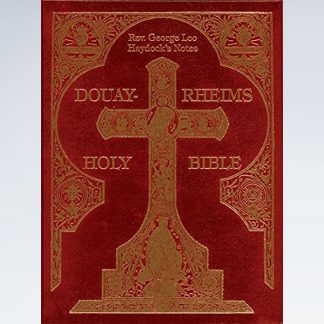 The Haydock Bible with Commentary (The Douay-Rheims Old and New Testament)US$ 150.00
The Haydock Bible with Commentary (The Douay-Rheims Old and New Testament)US$ 150.00 -
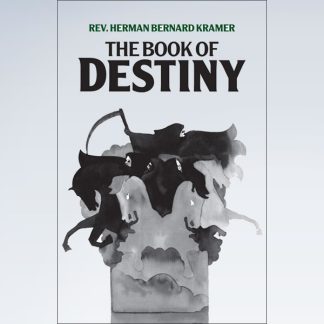 The Book of DestinyUS$ 30.00
The Book of DestinyUS$ 30.00 -
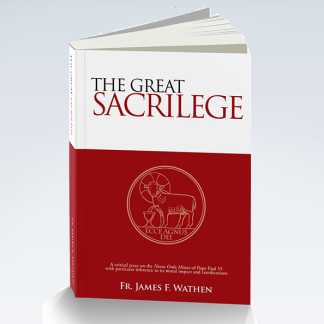 The Great SacrilegeUS$ 25.00
The Great SacrilegeUS$ 25.00 -
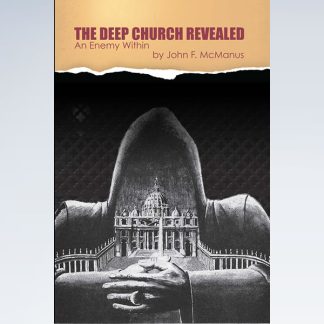 The Deep Church Revealed – An Enemy WithinUS$ 20.00
The Deep Church Revealed – An Enemy WithinUS$ 20.00 -
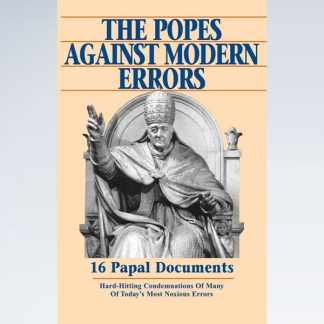 The Popes Against Modern Errors: 16 Papal DocumentsUS$ 24.00
The Popes Against Modern Errors: 16 Papal DocumentsUS$ 24.00 -
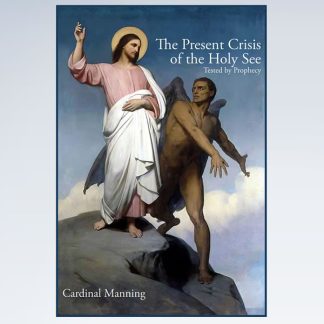 The Present Crisis of the Holy See – Tested by ProphecyUS$ 15.00
The Present Crisis of the Holy See – Tested by ProphecyUS$ 15.00
VIRGÓ SACRÁTA is a Christian mission-driven online resource and shop inspired from the beauty of Catholic faith, tradition, and arts. Our mission is to “Restore All Things to Christ!”, in continuing the legacy of Pope St. Pius X under the patronage of the Blessed Virgin Mary. “Who is she that cometh forth as the morning rising, fair as the moon, bright as the sun, terrible as an army set in battle array?” O Mary, conceived without sin, pray for us who have recourse to Thee.




